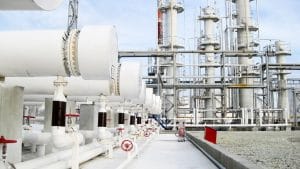 Reducing costs is one of the most common reasons why companies choose to upgrade their electrical thermal management systems. In some cases, traditional solutions are highly effective – they just require high amounts of energy, frequent routine maintenance and repairs that can add up to significant overhead costs. With more modern solutions, such as heat exchangers that transfer waste heat instead of chilling it, companies can achieve equally effective thermal management at much lower costs. Heat exchangers also often prove even more effective at handling some of the more complex thermal management demands of advanced technologies.
Reducing costs is one of the most common reasons why companies choose to upgrade their electrical thermal management systems. In some cases, traditional solutions are highly effective – they just require high amounts of energy, frequent routine maintenance and repairs that can add up to significant overhead costs. With more modern solutions, such as heat exchangers that transfer waste heat instead of chilling it, companies can achieve equally effective thermal management at much lower costs. Heat exchangers also often prove even more effective at handling some of the more complex thermal management demands of advanced technologies.
Heat exchangers compared to more traditional solutions
The electrical thermal management solutions that companies used to rely on most heavily included air conditioners that operate using HVAC processes and air compressors to streamline the cooling of air. Both types of solutions are based on the principles of preventing electrical overheating by chilling the temperatures inside of electrical enclosures. However, heat exchangers prevent electrical overheating by concentrating on electrical waste heat itself. Instead of chilling it, a heat exchanger’s cooling fluid absorbs it, then transfers it somewhere it can be dissipated without causing any harm to sensitive electrical components.
Lower costs associated with better thermal management
Their approach to transferring waste heat is the biggest differentiator between heat exchangers and other common electrical cooling solutions. It’s also the basis for the many different types of overhead costs that they help reduce. For example, when a cooling fluid absorbs heat, it becomes much easier to transfer within the electrical enclosure, which means heat exchangers don’t require nearly as much energy to prevent electrical overheating. The equipment used to facilitate the transfer of heat is also much more streamlined than traditional HVAC or air compression equipment, making heat exchangers less likely to break down or require such frequent maintenance and repairs.
Adapting cost-saving heat exchangers for unique applications
More companies have benefited from the reduced costs associated with heat exchangers due to the cooling technology’s unique adaptability. The relative simplicity of transferring electrical waste heat makes heat exchangers adaptable to a wide range of applications beyond conventional electrical enclosure cooling. For example, specialized heat exchangers also help companies make unique processes more efficient and eco-friendly, including wastewater treatment, food and beverage pasteurization, and much more. For more information about how transferring waste heat helps companies reduce overhead costs, call Noren Thermal Solutions in Taylor, TX, at 866-936-6736.







